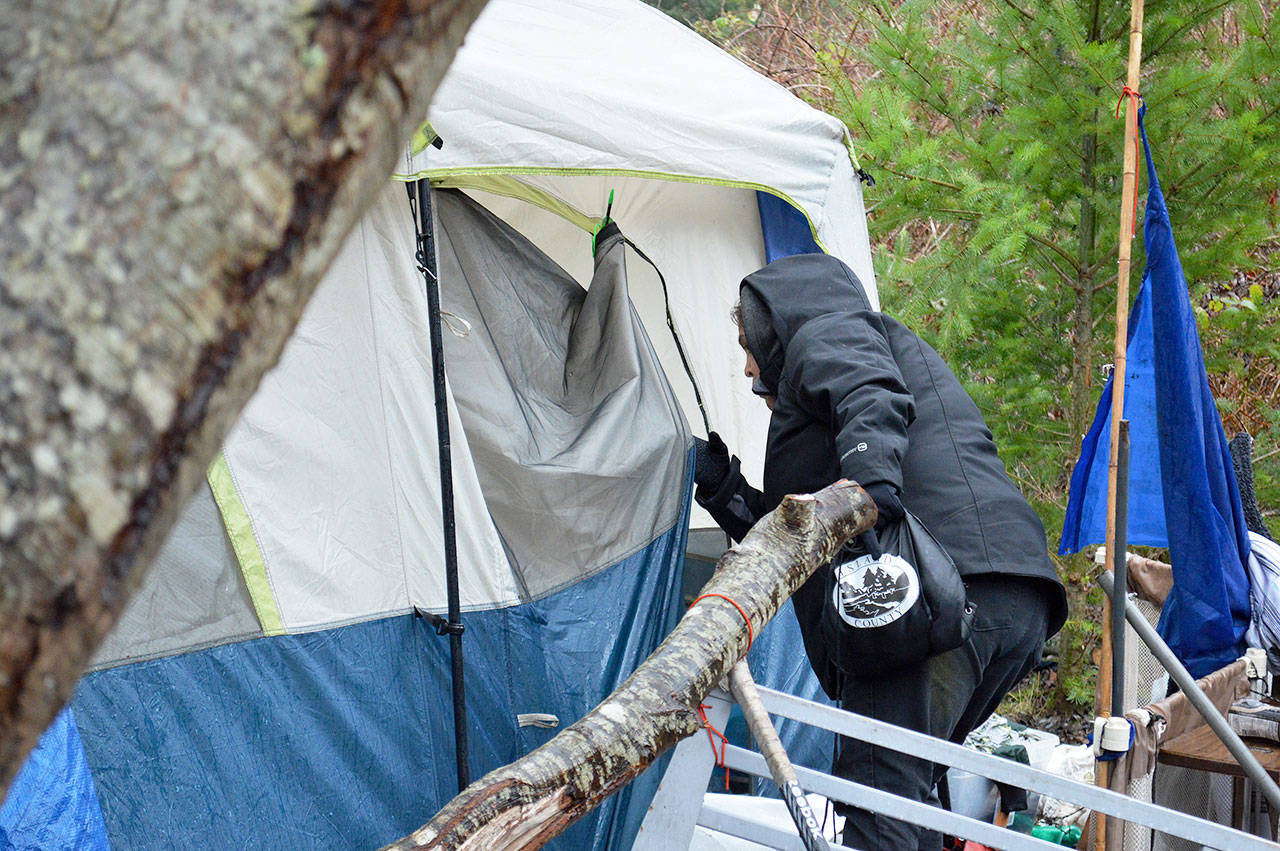Out of the 35 years he’s lived on Whidbey Island, Gregory Eggett has spent the last two homeless. He lives in a car, which he said has kept him warm and relatively comfortable throughout the winter months.
Eggett is one of many homeless people in Island County counted Thursday as part of the annual Point in Time Count.
The federally mandated effort is used to show trends, identify particular needs in each county and determine grant funding.
Last year, county officials and volunteers counted 127 individuals at events on the north and south ends of the island and at places homeless individuals were known to occupy. Over 30 of those counted were minors.
Catherine Reid, Island County housing program coordinator, said staff knows a lot of people don’t get counted because they aren’t found and a few choose not to be surveyed.
“We look at it as a one-day snapshot,” she said.
The data they collect during the Point in Time Count is used alongside information from the Housing Support Center to get a more in-depth look at the needs in the county, she said.
This year the county provided a hot meal, free clothes and prizes at the SPIN Cafe in Oak Harbor and Island Church of Whidbey in Langley for people who came in and took the survey.
As Eggett ate his chili and drank coffee at the SPIN Cafe after being surveyed, he said last year he didn’t know about the count, but this time he made a concerted effort to participate after seeing fliers for it around town.
“It’s good they’re having this so they can get the details,” he said.
The survey asks questions about where people stayed the night before, how long they’d continuously been without housing, if they have disabilities and the circumstances leading to their housing status.
“This is the longest running data that we have as a state and a nation on homelessness,” said Joanne Pelant, Island County housing resource coordinator. She said the information from the survey gets pooled together to provide more insight into the problem at a national, state and local level.
Eggett said he would soon have a home after repairing his relationship with his wife of 30 years. He said he stopped drinking and was participating in intensive outpatient treatment at Sea Mar Oak Harbor Behavioral Health Clinic. He credits Sea Mar with his improved relationship with his wife and others close to him.
“Boy, has it helped me,” he said.
“They made it real easy if I can go 18 days without a beer, I can go a lot longer,” he added.
He said the treatment has also included lessons in stress management and communication.
The hardest part of the process for him has been changing the people he spends time with so he isn’t around people who drink. He’s met new friends through his church, Family Bible Church, and the classes at Sea Mar.
He sat next to one of the friends he made during his treatment at the SPIN Cafe.
The volunteers outside the cafe had mixed success finding people to survey, and many only found abandoned camps in the trees with tarps, clothes and miscellaneous objects there. One camp in the woods even had dirty diapers and children’s toys on the ground.
“It’s eye opening,” said Christin McCausland, a volunteer from Sea Mar, as she walked around a large camp.
Eggett is positive about his life turning around. He recently applied for a job at Safeway after years of doing odd jobs.
He said his communication skills have improve and his temper is milder after he stopped drinking.
“Everybody is seeing me as normal again.”



